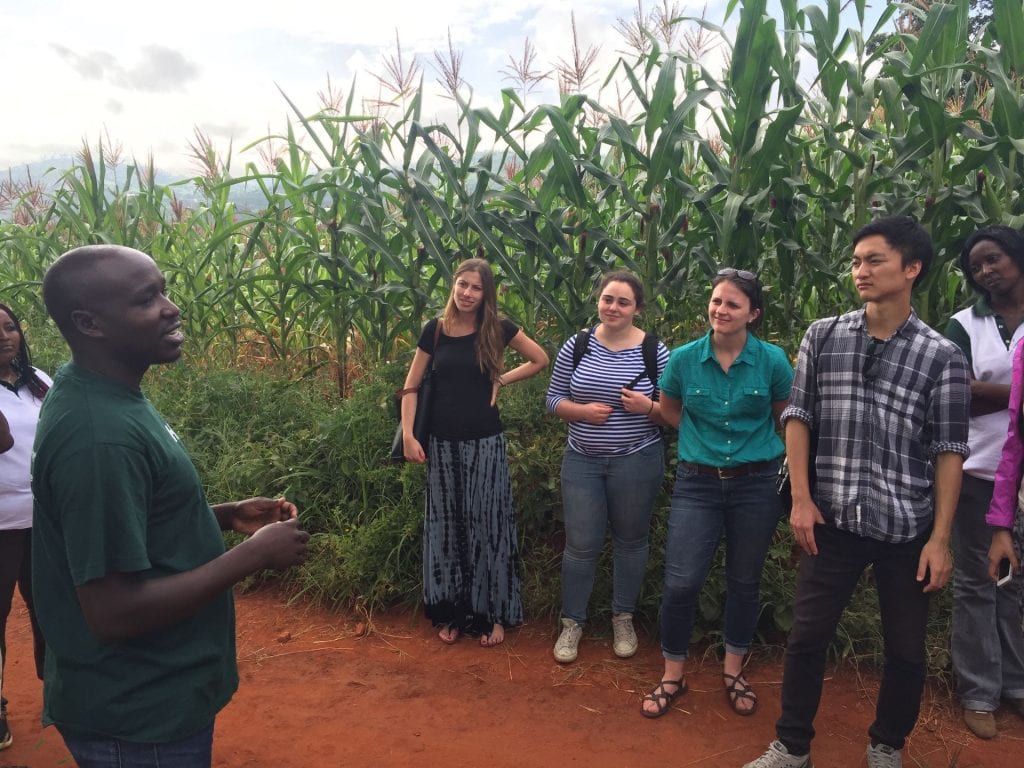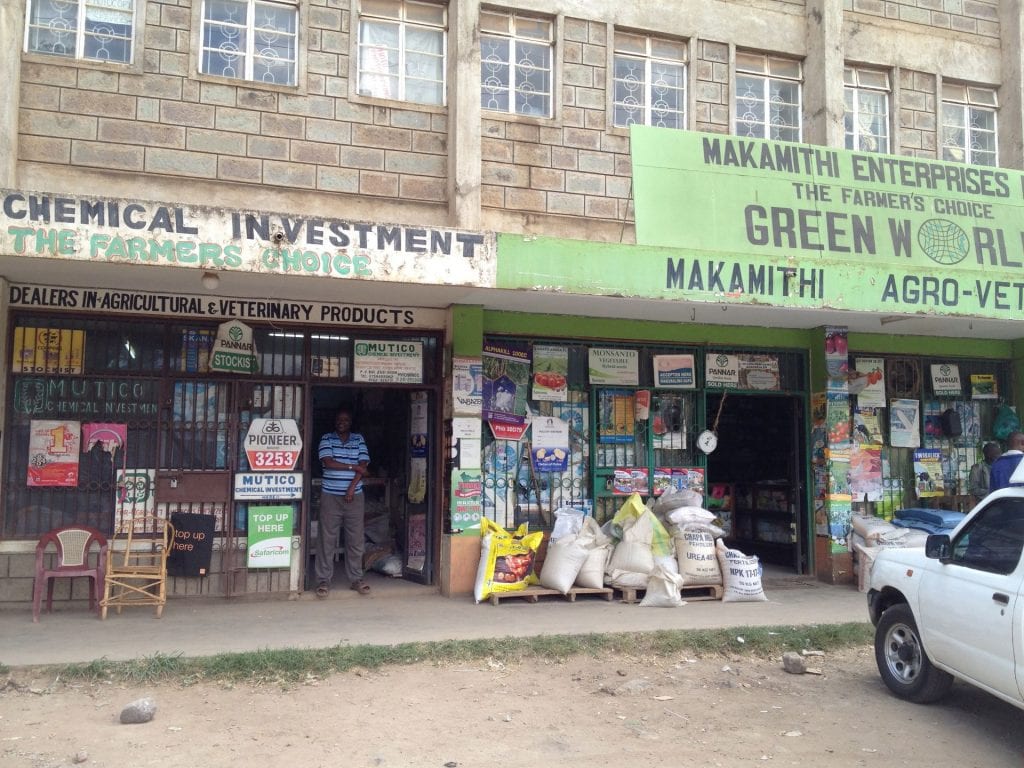2016
Kirirom Food Production, CAMBODIA
Partner Vision: The company’s mission is to optimize the usefulness of fruit production, especially mango, and to contribute to increased incomes in the Kirirom regional community by creating a sustainable market for mango and creating jobs in the company factory.
Partner Background: Kirirom Food Production Co., Ltd began growing mangos in 2002. In 2013 the company built a 5,000 m2 state of the art dried fruit processing factory in Kirirom, Cambodia. The company’s mission is to optimize the usefulness of fruit production, especially mango, and to contribute to increased incomes in the Kirirom regional community by creating a sustainable market for mango and creating jobs in the company factory.
SMART Impact: The project team worked with Kirirom Food Production Co., Ltd. to examine the challenges the company faces including market access, international competition for dried fruits, and accessing raw materials for processing. The team concluded the project by writing a case study of the company.
Hebei Qimei Agricultural Science and Techn, CHINA
Partner Vision: Qimei is a fast growing company in China’s organic food sector, supplying domestic and international markets (South East Asia, Europe, and the US) with a wide range of organic foods. The company is looking to have greater impact in the North American market.
Partner Background: Qimei reflects the entrepreneurial effort of CEO and cofounder Mrs. Yuqi Zhao. Confident in the potential of organic vegetable production in China, Mrs. Zhao harnessed the support of six partners to establish the company in 1999 and invest in purchasing 200 acres for the first Qimei production site. A five-acre processing facility was built in 2006, and the company has since added two additional processing facilities. Today Qimei contracts with more than 3500 farmers in villages across Hebei Province who provide a wide range of crops for processing. Qimei products are certified organic by multiple third party sources including: USDA, Europe EC, Canada COR, Japan JAS, china OFDC, and COFCC. Qimei currently seeks to expand its US presence. Cornell has had an on-going relationship with Qimei beginning in January 2011 when a Smart Team addressed marketing issues for the company. Since then Cornell and Qimei have deepened their collaboration. A second Smart Team focused on agronomic issues in January 2012 and Qimei has since hosted four consecutive summer internships (2012-2015) where Cornell students have conducted field experiments related to soil health.
SMART Impact: The SMART team focused on helping the company identify and develop value–added food products for the US market.
 Dryland Seeds Ltd., KENYA
Dryland Seeds Ltd., KENYA
Partner Vision: Dryland Seeds seeks to grow rapidly in the next few years but faces two major challenges: (1) Competition in the Kenyan seed sector has increased rapidly over the last decade (2) The company needs an aggressive marketing plan that increases value to smallholder farmers.
Partner Background: The Dryland Seed Limited (DSL) was formed and registered in 1996 by the Registrar of Companies as a company limited by shares, under the Companies Act (cap 486) of the Laws of Kenya. The company was originally registered as Kay Kay Mkulima Stores Ltd. In 2004 the company successfully applied for a seed merchandising license (The Seeds and Plant Varieties Act – Cap 326), which necessitated a name change to Dryland Seed Limited. DSL is a seed company specializing in African crops for low and medium altitude Arid and SemiArid Lands (ASAL). The types of seeds sold include maize, beans, sorghum, cowpeas, pigeon peas, and green grams. DSL has partnered with the Kenya Agriculture Research Center (KARI) through a licensing agreement to attain seed varieties that have been developed for dry land areas.
SMART Impact: The SMART team documented and intends to publish the case study of Dryland Seeds Ltd. as an SME in an emerging economy. They also developed a marketing plan to help the company penetrate current and new markets to increase their sales volumes and also conducted a strategic analysis of the company’s growth strategy.
 Makamithi Enterprises Ltd., KENYA
Makamithi Enterprises Ltd., KENYA
Partner Vision: To be the leading supplier of quality farm products and become the farmer’s choice supplier.
Partner Background: Makamithi Enterprises Ltd (MEL) was registered in February, 1998 as a company limited by shares. The Company is owned by Mr. Gideon Mangu, a retired Banker and Jenifer Mangu, an Accountant. The company supplies agricultural inputs to smallholder farmers. They mainly deal with Agrochemicals, Fertilizers, Animal Feeds, Animal Health products, Maize and Vegetable Seeds, Day Old Chicks, Tools and Implements. These products are sold at both wholesale and retail levels. MEL has been appointed by major companies in the agricultural sector to distribute their products in Eastern Kenya. The company seeks to provide an environment where the farmer’s benefit the most and are provided with quality products and service. They have two branches in Machakos town and are planning to open a third one at Emali on Mombasa road, which will facilitate their distribution in other counties neighboring Machakos County.
SMART Impact: The SMART team documented and intends to publish the case study of Makamithi Enterprises, Ltd. as an SME in an emerging economy. They also developed a marketing plan to help the company penetrate current and new markets to increase their sales volumes and also conducted a strategic analysis of the company’s growth strategy.
Lakeside Fish Farm, RWANDA
Partner Vision: To guarantee the best quality fish, for discerning restaurants and consumers, that are always clean, fresh tasting and of uniform appearance.
Partner Background: Lakeside Fish Farm is a commercial fish farm startup in Rwanda, which produces fingerlings and table fish for human consumption. According to their website, “Lakeside fish are the freshest, most consistently available fish in Rwanda because they are taken from cages and directly placed on ice”—no freezing. Lakeside grows both Niloticus tilapia and African catfish.
SMART Impact: The SMART team created a baseline report, which helped explain and understand the current context of the company and helped define benchmarks for the expansion and growth process. They also created a marketing strategy based on extensive analysis of both domestic and international markets and a communication strategy to help clarify and promote Lakeside’s mission, vision and approaches. Finally the team intends to publish a case study building on the synthesis and integration of the baseline, marketing and communication strategies.
 Metro Kang Jian Biotech Co. Ltd., TAIWAN
Metro Kang Jian Biotech Co. Ltd., TAIWAN
Partner Vision: MKJ is looking for ways to differentiate itself from its competitors in the health supplement industry. In Taiwan, the annual market for antrodia cinnamomea is over US$100 million, but it is a well-established and saturated market. The company seeks to revamp its marketing strategy and is also interested in exploring potential new markets, e.g. US, China, and Japan.
Partner Background: Metro Kang Jian (MKJ) is specialty health supplements distributor founded in 2014. Its parent company, Kang Jian Biotech (KJ), was established in 1991 and is in the business of researching and producing 100 tons of mushrooms yearly, including antrodia cinnamomea. Antrodia cinnamomea, a type of mushroom unique to Taiwan, is used as a supplement for various purposes such as hypertension reduction and liver protection. MKJ sells its two main product lines, antrodia cinnamomea and ganoderma lucidum (reishi), directly to consumers via an e-commerce platform.
SMART Impact: The SMART team imbedded in the Metro Kang Jian Biotech Co, office in Taipei and researched ways in which the company could improve their marketing strategy and customer interactions in the potential new markets. A case study is expected.
JSP Pharmaceutical Company Ltd., THAILAND
Company Vision: To provide new innovative dietary supplements and cosmetics with a focus on prevention rather than treatment.
Company Background: JSP Pharmaceutical Factory Co. (Thailand) Ltd. was registered on 15 November 2005. The company provides contract manufacturing of dietary supplements, cosmetics, herbs vitamins body type including coffee for health Supplements. The company has been registered with the Food and Drug Agency (FDA) under the customer’s brand (OEM) and received standard ISO 9001:2008 and GMP standards by the control scientists and experts. JSP Company is also joining with the main factory named COX that has operated by his family for 30 years experiences to produce more than 80 kinds of products for both domestic and international distributors. The company also has an open front, supplements, traditional medicines, which will be able to accept the new way of life of certain customer group health conscious. Focus on prevention rather than treatment. Group therapy and alternative medicine and shape and skin care segments.
SMART Impact: JSP, in partnership with Naresuen University, has developed four innovative new products: two lotions, an herbal supplement, and a natural extract. The products are now in the testing phase. The SMART team partnered with Thai university students, created a marketing strategy for each new product, and identified which product has the greatest potential in global markets.
